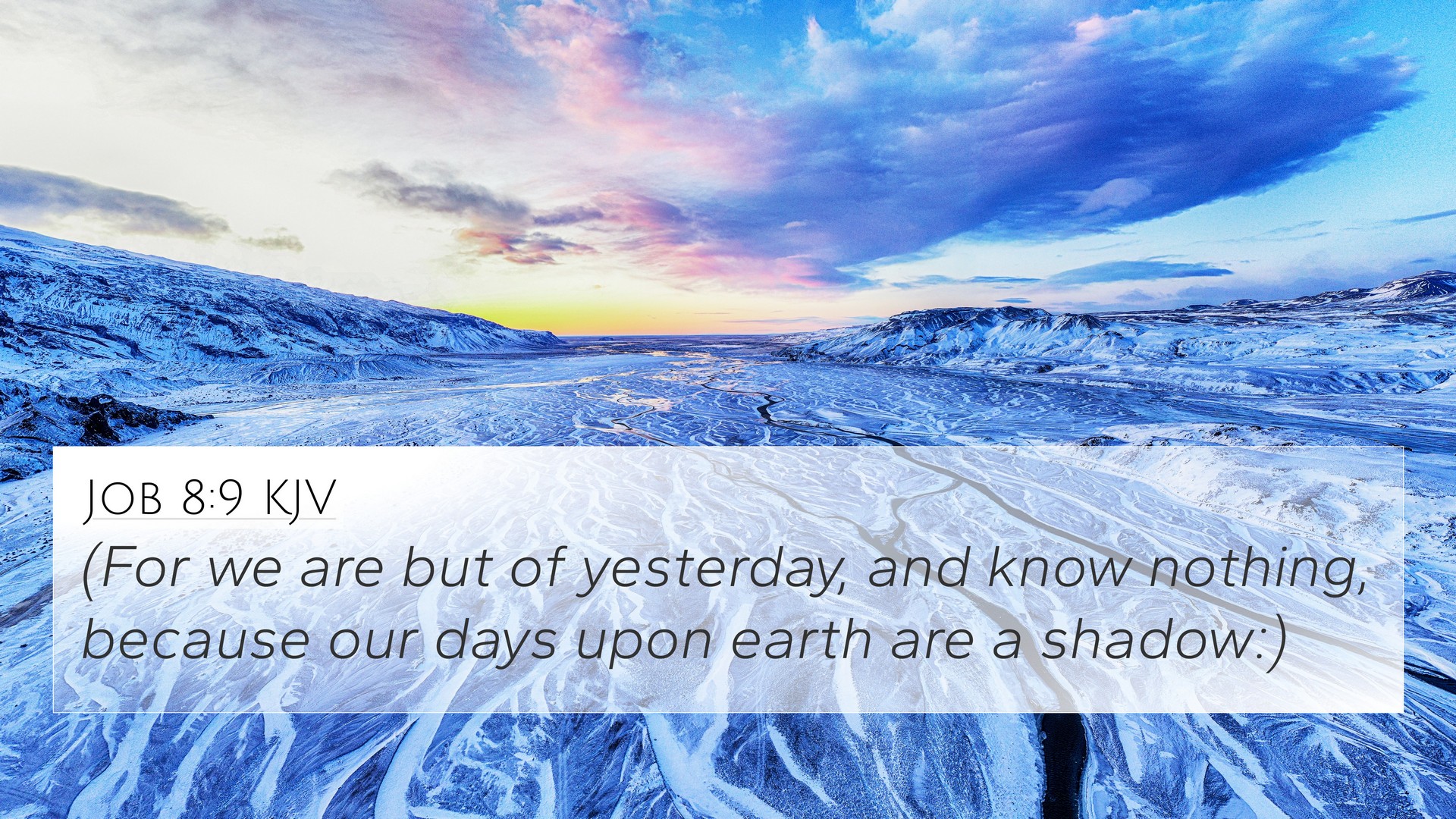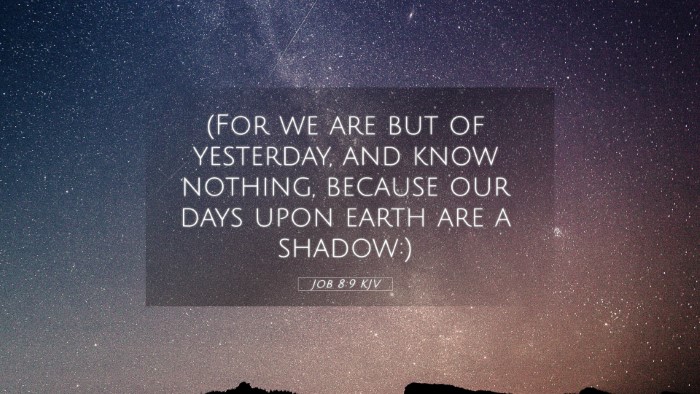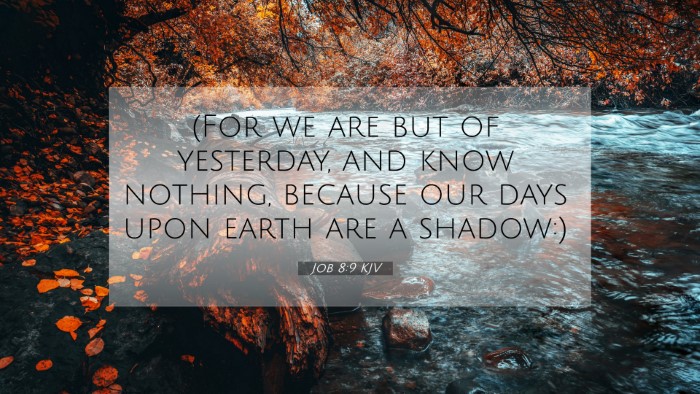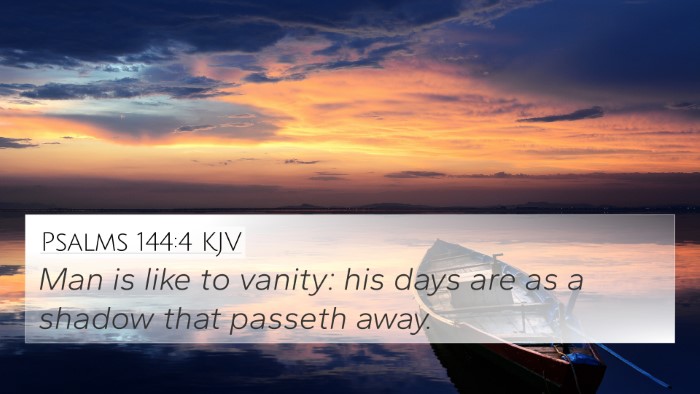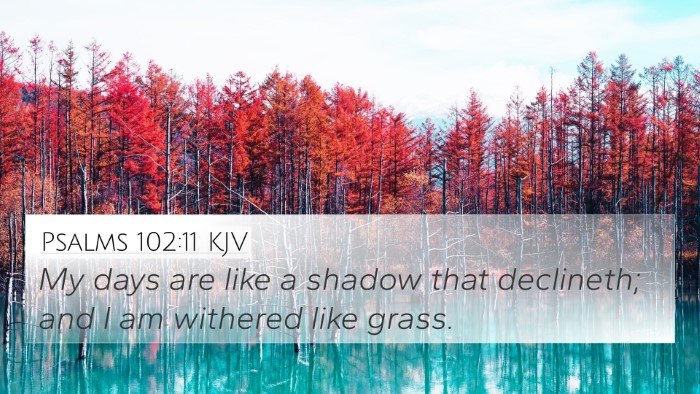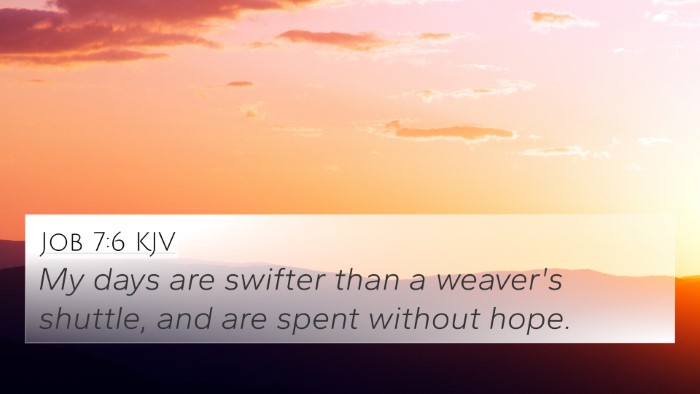Old Testament
Genesis Exodus Leviticus Numbers Deuteronomy Joshua Judges Ruth 1 Samuel 2 Samuel 1 Kings 2 Kings 1 Chronicles 2 Chronicles Ezra Nehemiah Esther Job Psalms Proverbs Ecclesiastes Song of Solomon Isaiah Jeremiah Lamentations Ezekiel Daniel Hosea Joel Amos Obadiah Jonah Micah Nahum Habakkuk Zephaniah Haggai Zechariah MalachiJob 8:9 Similar Verses
Job 8:9 Cross References
(For we are but of yesterday, and know nothing, because our days upon earth are a shadow:)
Uncover the Rich Themes and Topics of This Bible Verse
Listed below are the Bible themes associated with Job 8:9. We invite you to explore each theme to gain deeper insights into the Scriptures.
Job 8:9 Cross Reference Verses
This section features a detailed cross-reference designed to enrich your understanding of the Scriptures. Below, you will find carefully selected verses that echo the themes and teachings related to Job 8:9 KJV. Click on any image to explore detailed analyses of related Bible verses and uncover deeper theological insights.
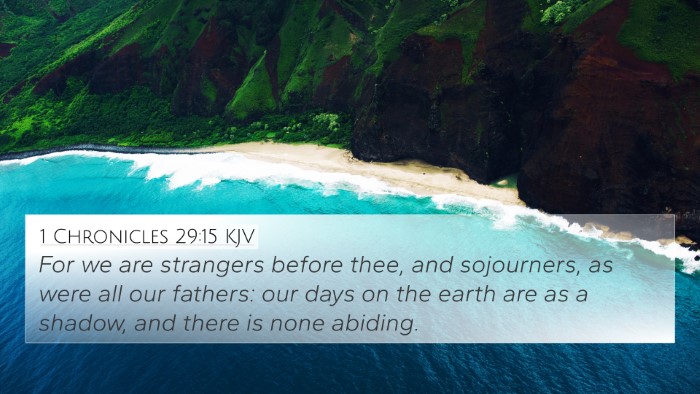
1 Chronicles 29:15 (KJV) »
For we are strangers before thee, and sojourners, as were all our fathers: our days on the earth are as a shadow, and there is none abiding.
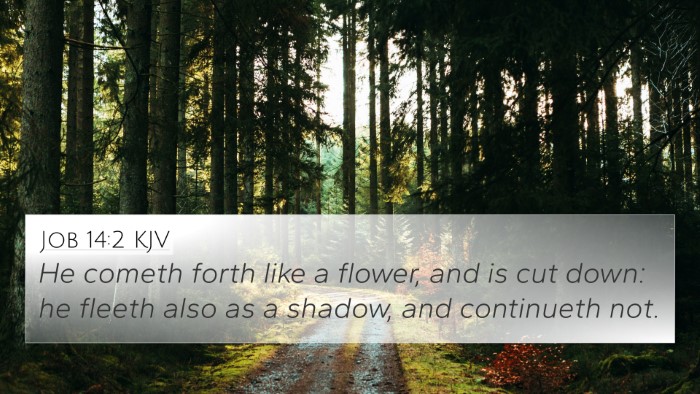
Job 14:2 (KJV) »
He cometh forth like a flower, and is cut down: he fleeth also as a shadow, and continueth not.
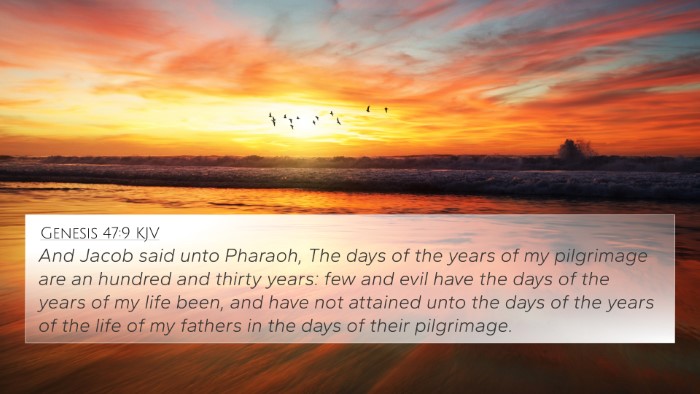
Genesis 47:9 (KJV) »
And Jacob said unto Pharaoh, The days of the years of my pilgrimage are an hundred and thirty years: few and evil have the days of the years of my life been, and have not attained unto the days of the years of the life of my fathers in the days of their pilgrimage.
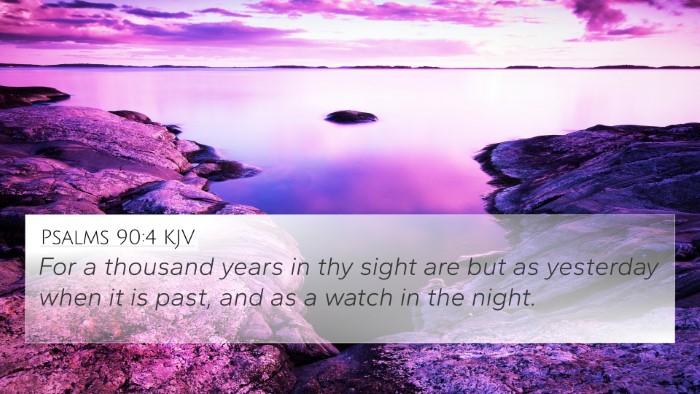
Psalms 90:4 (KJV) »
For a thousand years in thy sight are but as yesterday when it is past, and as a watch in the night.
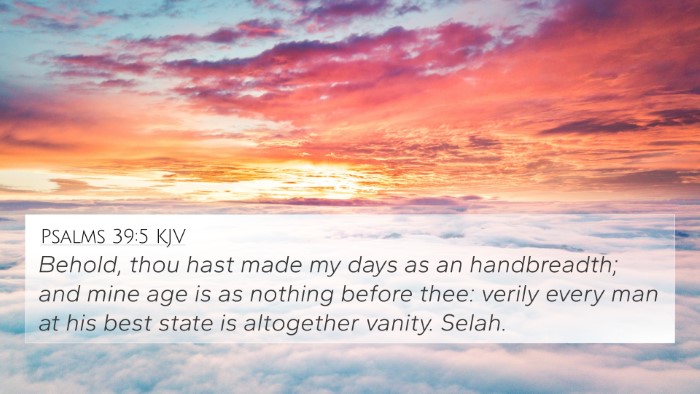
Psalms 39:5 (KJV) »
Behold, thou hast made my days as an handbreadth; and mine age is as nothing before thee: verily every man at his best state is altogether vanity. Selah.
Job 8:9 Verse Analysis and Similar Verses
Understanding Job 8:9
Job 8:9 states, "For we are but of yesterday, and know nothing, because our days upon earth are a shadow." This verse offers profound insights into human frailty and the brevity of life, highlighting the limited understanding of humanity in contrast to the eternal wisdom of God. Here, we will explore the interpretations of this passage through insights from renowned public domain commentaries.
Insights from Matthew Henry
Matthew Henry emphasizes the essence of ignorance in the human condition. He illustrates that the phrase "we are but of yesterday" signifies the fleeting nature of human life and achievements. Henry points out that in light of eternity, human spans of existence are but a fleeting moment. The idea of life being a "shadow" underlines the ephemeral and transient quality of our earthly experiences.
Albert Barnes' Commentary
According to Albert Barnes, Job 8:9 serves as a reminder of human limitations. He discusses how, despite man's quest for knowledge and understanding, there remains an ocean of divine wisdom untouched by human comprehension. Barnes connects this verse to the overarching theme of human dependency on God for knowledge and guidance, which mirrors the importance of relying on divine revelation over human wisdom.
Adam Clarke's Analysis
Adam Clarke elaborates on the imagery of "shadow" used in this verse. He interprets this metaphor to indicate that just as shadows are insubstantial and fleeting, so too are human lives compared to the eternal nature of God. Clarke conveys that acknowledging our own limitations and the briefness of our existence fosters humility and a need for divine assistance in understanding life's realities.
Thematic Connections and Cross-References
Job 8:9 resonates with several themes in scripture, particularly regarding the nature of existence and divine wisdom. Here are some cross-references that articulate similar themes:
- Psalm 39:5-6: "Behold, thou hast made my days as an handbreadth; and mine age is as nothing before thee: verily every man at his best state is altogether vanity."
- Ecclesiastes 3:20: "All go unto one place; all are of the dust, and all turn to dust again."
- Isaiah 40:6-8: "The voice said, Cry. And he said, What shall I cry? All flesh is grass, and all the goodliness thereof is as the flower of the field."
- James 4:14: "For what is your life? It is even a vapour, that appeareth for a little time, and then vanisheth away."
- 1 Peter 1:24: "For all flesh is as grass, and all the glory of man as the flower of grass. The grass withereth, and the flower thereof falleth away."
- Psalm 90:10: "The days of our years are threescore years and ten; and if by reason of strength they be fourscore years, yet is their strength labour and sorrow; for it is soon cut off, and we fly away."
- Job 14:1-2: "Man that is born of a woman is of few days and full of trouble. He cometh forth like a flower and is cut down: he fleeth also as a shadow, and continueth not."
Links to Broader Biblical Themes
This passage invites deeper reflection on the connections between various scriptures regarding mortality and divine wisdom. By utilizing tools for Bible cross-referencing, one can uncover the layered insights into human existence and God's eternal perspective. It provides a clearer understanding of scripture by linking biblical texts across both the Old and New Testaments.
How to Explore Bible Verse Connections
Utilizing resources such as a Bible concordance or a cross-reference Bible study guide, one can observe how Job 8:9 correlates with other verses discussing the themes of frailty and divine understanding. For example:
- Use Bible cross-reference systems to find parallels between Job and the teachings of Psalms and Proverbs regarding life’s brevity.
- Identifying connections between Old and New Testament verses can provide a comprehensive view of themes like mortality in ecclesiastical literature.
- Cross-reference Biblical texts to apply these themes in sermon preparation or personal study, exploring the inter-Biblical dialogue around human limitations and God's omniscience.
Conclusion
Job 8:9 serves as a poignant reminder of mankind's humble state in contrast to the infinite wisdom and understanding of God. By exploring this verse alongside its companion texts, one can gain a more profound understanding of the Scriptural portrayal of life’s transient nature and the perpetual need for reliance on divine wisdom. This analysis enhances our scriptural knowledge, allowing believers to navigate their faith with deeper insight and connection to the messages woven throughout the Bible.
